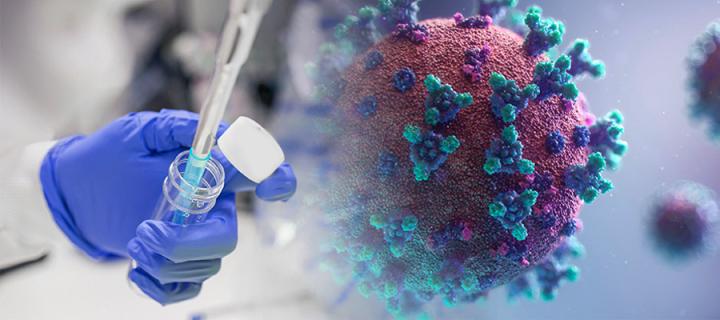What Is the Connection Between Viruses and Autoimmune Disorders?

This article aims to explore the connection between viruses and autoimmune disorders.
Autoimmune disorders refer to a group of conditions in which the body’s immune system mistakenly attacks its own tissues.
Viruses have been implicated as potential triggers for the development of autoimmune diseases, however, the mechanisms underlying this association remain poorly understood.
By understanding the immune response to viral infections and the mechanisms of virus-induced autoimmunity, we can gain insights into the link between viral infections and the development of autoimmune disorders.
Key Takeaways
- Viruses can trigger autoimmune disorders by dysregulating the immune response and causing immune tolerance breakdown.
- Viral infections can lead to persistent viral replication, which can then trigger abnormal immune responses against self-antigens.
- The molecular mimicry between viral and self-antigens can contribute to the production of autoantibodies and the activation of self-reactive immune cells.
- Chronic viral infections can sustain immune activation and inflammation, which can contribute to the development of autoimmune diseases.
The Role of Viruses in Triggering Autoimmune Disorders
The potential role of viruses in triggering autoimmune disorders has been a subject of ongoing investigation.
Viruses are known to replicate within host cells, utilizing the cellular machinery for their own replication. During viral replication, viral proteins are produced that can activate the immune system response. This immune response aims to eliminate the virus and infected cells.
However, in some cases, the immune response may become dysregulated, leading to the development of autoimmune disorders. It has been suggested that molecular mimicry between viral and self-antigens could contribute to the breakdown of immune tolerance. Additionally, viral infections can cause tissue damage and release self-antigens, further triggering autoimmune responses.
Despite these associations, the exact mechanisms by which viral infections contribute to the development of autoimmune disorders remain to be fully elucidated. Further research is needed to better understand these complex interactions.
Understanding the Immune Response to Viral Infections
Understanding the immune response to viral infections is essential for comprehending the relationship between these infections and autoimmune disorders.
When a virus enters the body, it triggers an immune response aimed at eliminating the foreign invader. The immune system recognizes viral components, such as viral proteins, and activates immune cells to attack and eliminate the virus.
This immune response involves the production of specific antibodies that bind to the virus, neutralizing its ability to infect cells. Additionally, immune cells, such as T cells, play a crucial role in killing virus-infected cells.
However, in some cases, the immune response may not completely eliminate the virus, leading to persistent viral replication. This ongoing viral replication can contribute to the development of autoimmune disorders by triggering an abnormal immune response against self-antigens, resulting in tissue damage and inflammation.
Therefore, understanding the immune response to viral infections is crucial for unraveling the complex relationship between viral infections and autoimmune disorders.
Viral Infections as Potential Triggers for Autoimmune Diseases
Exploring the potential triggers of autoimmune diseases, viral infections have emerged as significant factors in the development of these disorders. Viral infections have been implicated as potential triggers for autoimmune diseases due to their ability to disrupt normal immune system function. Some key points to consider are:
- Viral replication: Viruses can replicate within host cells, leading to the release of viral antigens that may trigger an immune response.
- Molecular mimicry: Viral antigens can resemble self-antigens, leading to cross-reactivity and the production of autoantibodies.
- Immune system dysfunction: Viral infections can dysregulate the immune system, impairing its ability to distinguish self from non-self.
- Epigenetic modifications: Viruses can induce epigenetic changes in host cells, altering gene expression and potentially contributing to the development of autoimmune diseases.
- Persistent infections: Chronic viral infections can lead to sustained immune activation and inflammation, which may contribute to autoimmune pathogenesis.
Mechanisms of Virus-Induced Autoimmunity
Exploring the mechanisms underlying virus-induced autoimmunity, research has revealed the involvement of host-virus interactions in triggering autoimmune responses. Immune system dysregulation plays a crucial role in the development of autoimmune disorders.
Viruses can induce dysregulation by activating immune cells and promoting the production of autoantibodies. Additionally, viral mimicry, a phenomenon in which viral proteins mimic self-antigens, can lead to the activation of autoreactive T cells. This molecular mimicry triggers an immune response against self-antigens, resulting in tissue damage and the development of autoimmune diseases.
Furthermore, viral infections can disrupt immune tolerance mechanisms, leading to the activation of self-reactive immune cells. Understanding these mechanisms is vital for the development of targeted therapies and preventive strategies for virus-induced autoimmunity.
Further research is needed to unravel the intricate host-virus interactions and identify specific viral factors responsible for immune dysregulation and viral mimicry in autoimmune disorders.
Exploring the Link Between Viral Infections and Autoimmune Disorders
Research has elucidated the association between viral infections and the development of immune-mediated disorders. Viral infections have been implicated as triggers for autoimmune disorders, and it is believed that both genetic factors and viral mimicry play a role in this association. Genetic factors can influence an individual’s susceptibility to viral infections and their subsequent development of autoimmune disorders. Moreover, viral mimicry refers to the ability of certain viruses to mimic host proteins, leading to the production of autoantibodies that target self-antigens. This molecular mimicry can trigger an immune response against self-tissues, resulting in the development of autoimmunity. The table below provides an overview of the key factors involved in the link between viral infections and autoimmune disorders.
| Key Factors | Description |
|---|---|
| Genetic Factors | Influence susceptibility to viral infections and autoimmunity |
| Viral Mimicry | Viruses mimic host proteins, leading to autoantibody production |
| Autoimmune Disorders | Result from immune response against self-tissues |
Frequently Asked Questions
How Long Does It Typically Take for a Viral Infection to Trigger an Autoimmune Disorder?
The timeframe for a viral infection to trigger an autoimmune disorder can vary. Factors such as the individual’s immune system response, type of virus, and other host factors may influence the duration of time before long-term effects manifest.
Are There Specific Viruses That Are More Likely to Trigger Autoimmune Disorders Than Others?
Specific viruses have been identified as potential triggers for autoimmune disorders. These viruses have varying degrees of likelihood in causing such disorders, hence warranting further research to understand their mechanisms of action and potential therapeutic interventions.
Can Viral Infections Be Prevented to Reduce the Risk of Developing Autoimmune Disorders?
Prevention strategies targeting viral infections may potentially reduce the risk of developing autoimmune disorders. By understanding the underlying mechanisms of the immune response to viral infections, interventions can be designed to modulate the immune system and prevent autoimmune reactions.
Are Autoimmune Disorders Only Triggered by Viral Infections, or Can Other Factors Also Play a Role?
Autoimmune disorders can be triggered by viral infections, but other factors such as genetic and environmental factors can also play a role. The connection between viruses and autoimmune disorders is complex and multifactorial.
Are There Any Treatments Available to Manage or Prevent Autoimmune Disorders That Are Triggered by Viral Infections?
Novel therapeutic approaches and the role of antiviral medications are potential treatment options for managing or preventing autoimmune disorders triggered by viral infections. Further research is needed to determine their effectiveness and safety.









